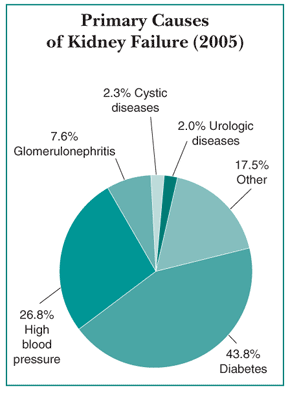 UA nephrologist Bijin Thajudeen, MD, recently had his first book published as co-author of Managing Diabetic Nephropathies in Clinical Practice, which was released in July by Adis, a publishing unit of Springer Nature.
UA nephrologist Bijin Thajudeen, MD, recently had his first book published as co-author of Managing Diabetic Nephropathies in Clinical Practice, which was released in July by Adis, a publishing unit of Springer Nature.
The book offers an overview of the diagnosis, treatment, and long-term management of diabetic-related kidney disease in clinical practice. This includes an evidence-based discussion of currently available and experimental drug therapies in development, guided by international consensus guidelines. It’s ideal for physicians, medical trainees, nurses and other medical professional that regularly screen and treat patients with all types of diabetes.
 Dr. Thajudeen, who joined the faculty of the UA Division of Nephrology after completing his fellowship here in 2013, wrote the chapter entitled, "Introduction and disease overview." The UA assistant professor also did his residency in internal medicine here in 2011 and earned his medical degree from the University of Kerala in Thiruvananthapuram, India, in 2001. He is currently the key clinical educator for the division and medical director of DCI dialysis units in Tucson and Douglas, Ariz.
Dr. Thajudeen, who joined the faculty of the UA Division of Nephrology after completing his fellowship here in 2013, wrote the chapter entitled, "Introduction and disease overview." The UA assistant professor also did his residency in internal medicine here in 2011 and earned his medical degree from the University of Kerala in Thiruvananthapuram, India, in 2001. He is currently the key clinical educator for the division and medical director of DCI dialysis units in Tucson and Douglas, Ariz.
"It's really a book of international breadth," said Dr. Thajudeen, noting that his co-authors are from across the United States as well as Austria and Japan.
Chief of Nephrology, Prabir Roy-Chaudhury, MD, PhD, congratulated Dr. Thajudeen and said, “I think this is an important event for our growing division.”
 Diabetic kidney disease, or diabetic nephropathy, is a complication of type 1 or type 2 diabetes caused by damage to the kidneys' delicate filtering system. With diabetes, the small blood vessels in the body are injured. When blood vessels in the kidneys are injured, your kidneys cannot clean your blood properly. Your body retains more water and salt than it should, which results in weight gain and ankle swelling. According to the National Institute of Diabetes and Digestive and Kidney Diseases (NIDDK), which is part of the National Institutes of Health, diabetes is the most common cause of kidney failure, accounting for nearly 44 percent of new cases.
Diabetic kidney disease, or diabetic nephropathy, is a complication of type 1 or type 2 diabetes caused by damage to the kidneys' delicate filtering system. With diabetes, the small blood vessels in the body are injured. When blood vessels in the kidneys are injured, your kidneys cannot clean your blood properly. Your body retains more water and salt than it should, which results in weight gain and ankle swelling. According to the National Institute of Diabetes and Digestive and Kidney Diseases (NIDDK), which is part of the National Institutes of Health, diabetes is the most common cause of kidney failure, accounting for nearly 44 percent of new cases.
Chronic kidney disease (CKD) affects about 10 percent of the global population with millions dying because of lack of access to affordable treatment. From 1990 to 2010, CKD rose from 27th to 18th among causes of death worldwide—a jump second only to HIV/AIDS. Of the 2 million people who receive treatment with dialysis or a kidney transplant to stay alive, the majority are in only five countries—the United States, Japan, Germany, Brazil and Italy. The U.S. cost of treating CKD is estimated to exceed $48 billion per year with treatment for kidney failure accounting for 6.7 percent of the total Medicare budget, according to the National Kidney Foundation.
The UA Division of Nephrology is one of 13 divisions in the UA Department of Medicine, the largest department at the UA College of Medicine – Tucson with about 200 faculty physicians. In addition to clerkships and sub-internships for second- and third-year medical students , the department trains more than 130 resident physicians and 70 fellows in internal medicine and all its subspecialties from cardiology to rheumatology.
Now a unit of Springer Nature, Adis has more than 40 years’ experience in publishing, with a portfolio of more than 30 medical journals and newsletters. Founded as Australasian Drug Information Services in New Zealand in the 1960s, it now has offices in New Zealand, the United States, United Kingdom, German and India. Springer Nature is a leading global research, educational and medical publisher, the world’s largest academic book publisher, publisher of a number of influential journals and a pioneer in the field of open research. The company— formed in 2015 by the merger of Nature Publishing Group, Palgrave Macmillan, Macmillan Education and Springer Science+Business Media —employs almost 13,000 staff in over 50 countries.
Visit www.springer.com/gp/adis

